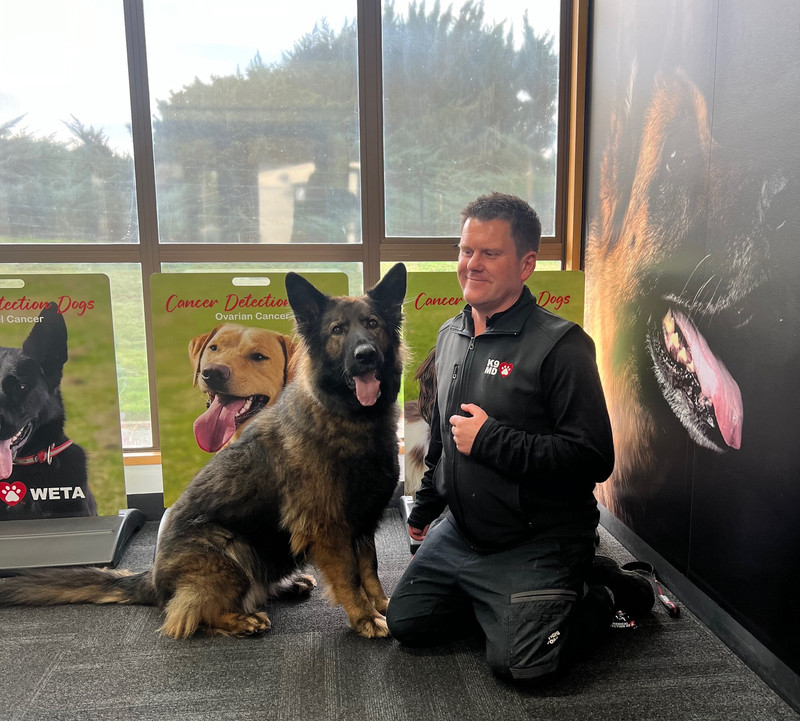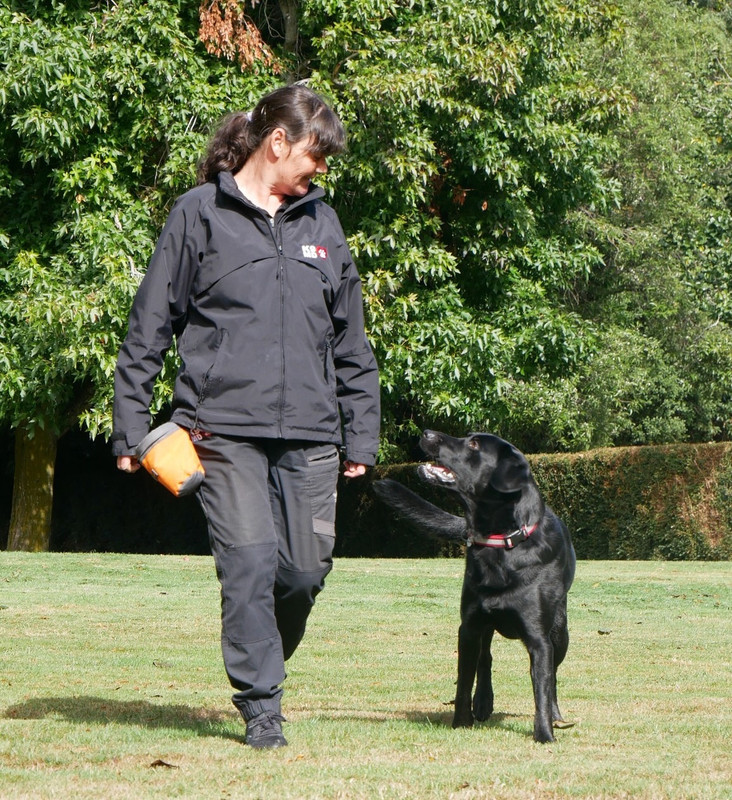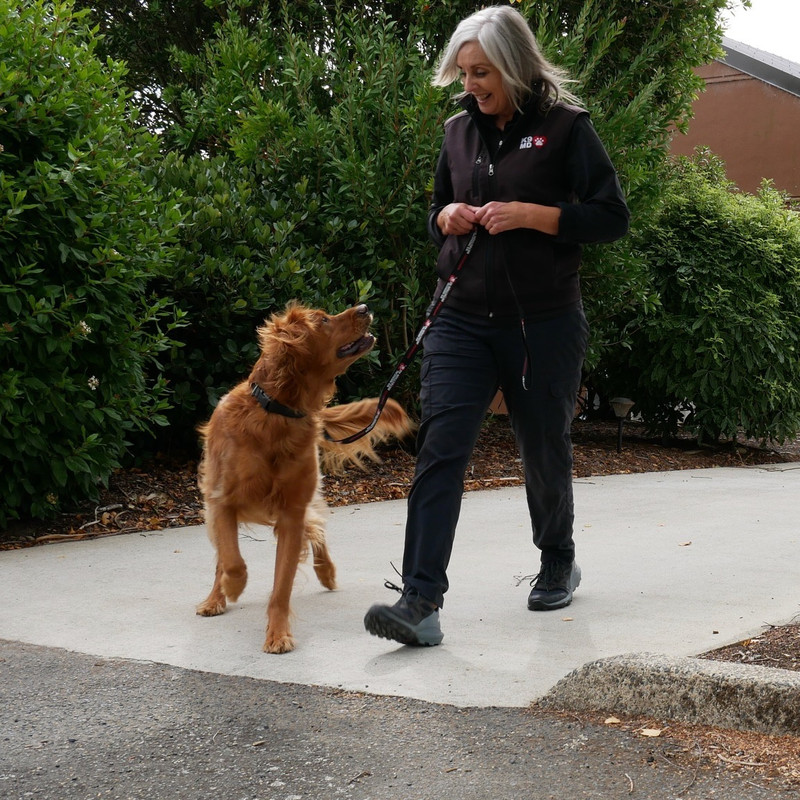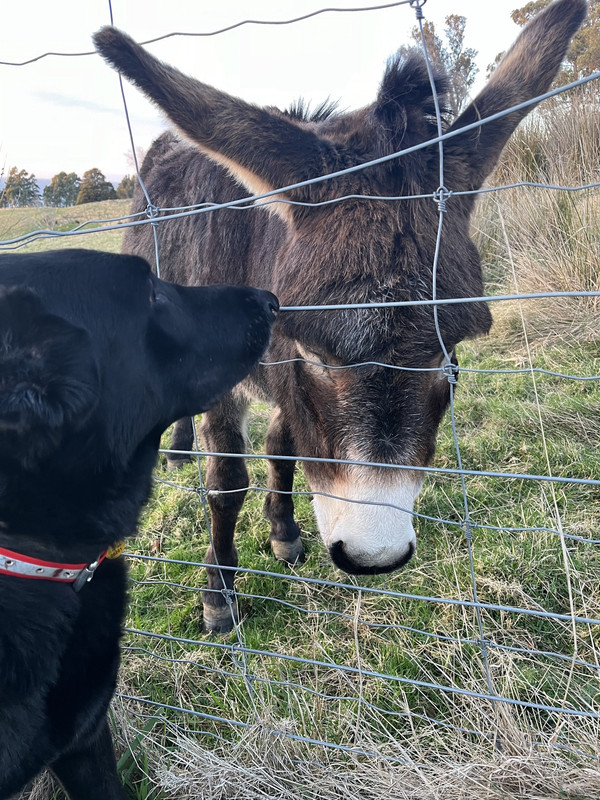Dog Blog Issue Nine
The Man with the Golden Dog - it’s a Bond thing
Our newest trainer, Richard, has been quick to settle in over these past few months, and already seems to have fallen for Freida in a big way. The bond that our dogs and trainers form is the key to our success in achieving highly accurate results in cancer diagnosis. Imagine getting up every morning and being excited about going to work, because you have such a great colleague to spend the day with and the work you do together is saving lives. It doesn’t get much better than that. So, how do we achieve that? How does that synergy happen? What is it about the canine-human bond that has brought us to this point? Let’s see what science says about it ?
Why do dogs love us?
Humans and dogs have been best mates for at least 18,000 years. Some researchers say this is due to dogs’ cognitive abilities - they can ‘read’ our gestures and intentions; others say it is dogs’ hypersociability, which makes them friendly towards humans and want to keep interacting with us, where other animals simply greet us and move on.
MRI scans have revealed that a dog’s reward centre is active when they are praised, and that human praise gets as good a reaction as a high-value food treat. Indeed, research has found that that some dogs prefer their bonded human to food! There is a similarity, between the part of a dog’s brain that lights up when they hear their human’s voice, to the area in a human brain that lights up around people or things we love.
So, what are the human attributes that contribute to a successful human-dog relationship? Do they see us as part of their family? Or is it just that we provide them with an endless supply of meals? Research demonstrates that dogs can understand human signals better than chimpanzees, (whose DNA makes them our closest animal relative). It was thought that this is because dogs are good at ‘social scavenging’ - cooperation resulting in the provision of food. But further investigation has revealed that there is more to the relationship than a commercial exchange. Researchers believe it is reasonable to assume that dogs view humans as peers who often provide useful information about the surrounding environment. Dogs use humans as social reference points, enabling them to interact safely with the world. We are a safe haven. Humans give dogs the confidence to investigate new things - our presence emboldens them.
An attachment bond is a close, emotional connection. The dog-human bond is thought by researchers to be similar to an adult-child relationship. Dogs come to us for comfort when stressed or can become stressed when we leave them (separation anxiety). Both dogs and humans benefit from this relationship. Dogs get food and emotional fulfilment from the arrangement. Humans receive scientifically proven emotional and physiological benefits from it. This is a contract that results in higher well-being on both sides.
You can safely assume there is chemistry. Science shows that dogs who have good relationships with their humans have low salivary cortisol - so, less stress. When dogs stare into our eyes, they activate the same hormonal response in us that bonds us to human infants. Emotional hijacking - we don’t stand a chance! In fact, mutual gazing between dogs and their humans has a profound effect - raising oxytocin levels significantly in both parties. This is thought to play a role in bond formation, and the more frequent the interactions are, the greater the bond. This is why the amount of time trainers spend with their dogs is so important. Oxytocin also enhances dogs’ understanding of what humans are pointing at, so a strong emotional bond is critical to effective training.
K9MD trainers always use positive reinforcement in their work with the canine team, as this has been proven to affirm the good bond a trainer has with a dog, leading to better behaviour responses and obedience. The positive reinforcement technique relies on a skilled trainer to get the timing exactly right, though, for it to be effective. And a skilled trainer can create a stronger bond with their dog through the training process.
There is evidence, then, that the types of human behaviour that are likely to contribute to a more positive state in dogs are those that provide the dog with emotional value, such as affiliation, attention and safety. Dog handlers must be confident around their dogs - insecure relationships cause stress, compromising the dog’s welfare. Engagement is vital to a positive human-dog relationship. Empathetic humans are more aware of pain in their dog, and respond to resolve it quickly, again minimising the dog’s stress. K9MD trainers are highly attuned to the canine members of the team - they regard our dogs as valuable and respected colleagues, with needs and desires of their own. In a very large nutshell, that is why they love us.
Before we get too big-headed about all this, though, it’s worth noting that dogs can become fond of other species, too. Friendship is its own reward in these relationships.





